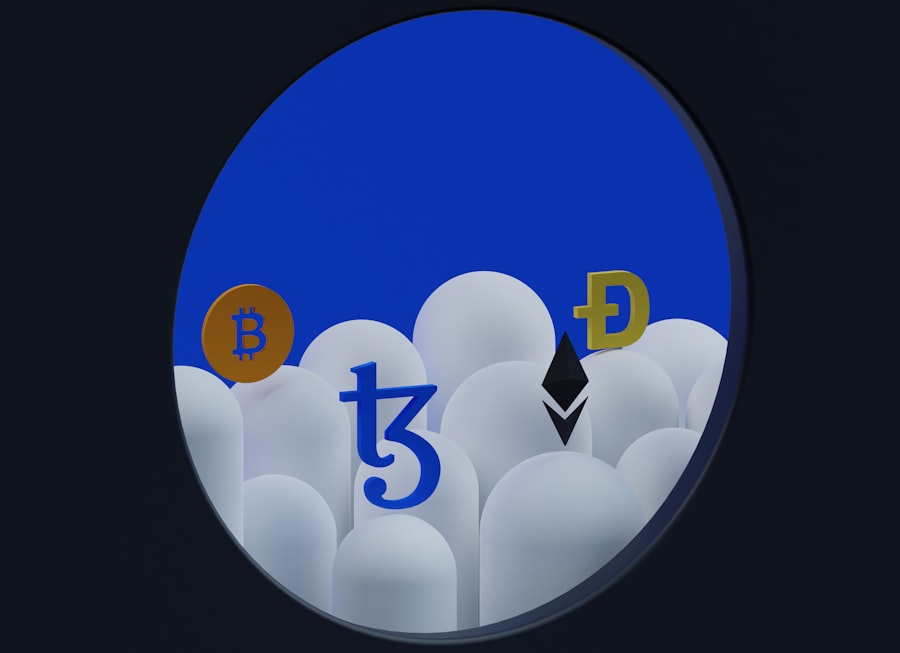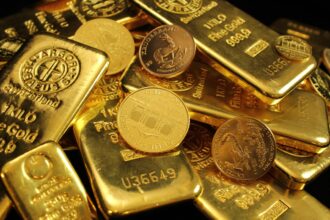Gold trading in the Middle East boasts a rich and storied history that dates back thousands of years. The region, often referred to as the cradle of civilization, has long been a hub for commerce and trade, with gold serving as a symbol of wealth and power. Ancient civilizations, such as the Sumerians and Egyptians, utilized gold not only for currency but also for crafting exquisite jewelry and religious artifacts.
The discovery of gold mines in regions like Nubia and the Arabian Peninsula facilitated the establishment of trade routes that connected the Middle East to Europe, Asia, and Africa. This early trading network laid the groundwork for the flourishing gold markets that would emerge in later centuries. As time progressed, the significance of gold in Middle Eastern societies evolved.
During the Islamic Golden Age, which spanned from the 8th to the 14th centuries, gold became a vital component of economic transactions and cultural expression. The introduction of sophisticated minting techniques allowed for the production of high-quality coins, which further stimulated trade. The bustling markets of cities like Baghdad and Damascus became renowned for their goldsmiths, who crafted intricate pieces that reflected both artistic skill and cultural heritage.
This historical backdrop underscores the deep-rooted connection between gold and the identity of Middle Eastern societies.
Key Takeaways
- Gold trading has deep historical and cultural significance in the Middle East, influencing local economies and traditions.
- The unregulated gold trade remains widespread, posing economic, environmental, and human rights challenges.
- Unregulated gold trading is linked to money laundering and complicates efforts to enforce legal and financial controls.
- Environmental degradation and labor abuses are significant concerns associated with unregulated gold mining in the region.
- International cooperation and stronger regulatory frameworks are essential for addressing the negative impacts and ensuring a sustainable future for the gold trade.
The Current State of the Unregulated Gold Trade
In contemporary times, the gold trade in the Middle East has witnessed a significant shift towards unregulated practices. While many countries have established frameworks to govern gold trading, a substantial portion of the market operates outside these regulations. This unregulated sector is characterized by a lack of oversight, leading to various challenges, including smuggling, tax evasion, and the proliferation of conflict minerals.
The allure of gold as a high-value commodity has attracted both legitimate businesses and illicit actors, creating a complex landscape that is difficult to navigate. The rise of unregulated gold trading can be attributed to several factors, including political instability, economic sanctions, and corruption within regulatory bodies. Countries such as Iraq and Syria have seen their gold markets become increasingly informal due to ongoing conflicts and weakened governance structures.
As a result, traders often resort to clandestine methods to buy and sell gold, bypassing official channels. This trend not only undermines legitimate businesses but also poses significant risks to consumers who may unknowingly purchase conflict gold or products derived from unethical practices.
The Impact of Unregulated Gold Trading on the Middle East Economy

The unregulated gold trade has far-reaching implications for the economies of Middle Eastern countries. On one hand, it provides opportunities for individuals to engage in profitable ventures without the constraints of formal regulations. However, this informal market also stifles economic growth by depriving governments of tax revenues that could be used for public services and infrastructure development.
The lack of regulation creates an uneven playing field where legitimate businesses struggle to compete against those operating outside the law. Moreover, unregulated gold trading can exacerbate existing economic inequalities within societies. Wealth generated from illicit gold sales often remains concentrated in the hands of a few individuals or groups, while broader populations continue to face economic hardships.
This disparity can lead to social unrest and further destabilization in regions already grappling with conflict or political turmoil. As such, addressing the challenges posed by unregulated gold trading is crucial for fostering sustainable economic development in the Middle East.
The Role of Gold in Middle Eastern Culture and Tradition
| Aspect | Description | Significance | Common Usage |
|---|---|---|---|
| Historical Value | Gold has been used as a symbol of wealth and power for thousands of years in the Middle East. | Represents prosperity and status | Jewelry, coins, and royal artifacts |
| Cultural Symbolism | Gold symbolizes purity, eternity, and divine connection in many Middle Eastern traditions. | Used in religious ceremonies and cultural rituals | Wedding gifts, religious ornaments |
| Economic Role | Gold trading and craftsmanship are significant economic activities in the region. | Supports local economies and artisans | Gold markets, artisan workshops |
| Traditional Jewelry | Gold jewelry is often elaborate and passed down through generations as family heirlooms. | Symbolizes family heritage and social status | Necklaces, bracelets, rings, and headpieces |
| Wedding Customs | Gold is a central part of dowries and bridal gifts in Middle Eastern weddings. | Represents commitment and financial security | Gold coins, jewelry sets given to brides |
| Artisan Craftsmanship | Goldsmithing is a highly respected craft with intricate designs unique to the region. | Preserves cultural identity and artistic heritage | Handcrafted jewelry and decorative items |
Gold holds a prominent place in Middle Eastern culture and tradition, symbolizing wealth, status, and prosperity. Throughout history, it has been used in various cultural practices, from wedding ceremonies to religious rituals. In many communities, gold jewelry is not merely an adornment but also a form of investment and savings.
Families often pass down gold pieces through generations, reinforcing familial bonds and cultural heritage. In addition to its economic significance, gold is deeply intertwined with social customs in the region. For instance, during weddings, it is customary for brides to receive elaborate gold jewelry as part of their dowry, signifying both wealth and familial honor.
Festivals and celebrations often feature gold as a central element, with people donning their finest pieces to showcase their status within the community. This cultural reverence for gold underscores its importance beyond mere monetary value; it is a tangible representation of identity and tradition.
The Challenges of Regulating the Gold Trade in the Middle East
Regulating the gold trade in the Middle East presents numerous challenges that stem from a combination of political, economic, and social factors. One significant hurdle is the lack of cohesive regulatory frameworks across different countries. Each nation has its own set of laws governing gold trading, leading to inconsistencies that can be exploited by unscrupulous traders.
Additionally, political instability in certain regions complicates efforts to establish effective oversight mechanisms. Corruption within regulatory bodies further exacerbates these challenges. In some cases, officials may turn a blind eye to illegal activities in exchange for bribes or other incentives.
This undermines public trust in regulatory institutions and perpetuates a cycle of unregulated trading practices. Furthermore, the informal nature of many gold transactions makes it difficult for authorities to track and monitor activities effectively. As a result, efforts to regulate the gold trade often fall short, leaving significant gaps that allow illicit practices to thrive.
The Connection Between Unregulated Gold Trading and Money Laundering

Unregulated gold trading is closely linked to money laundering activities in the Middle East. Criminal organizations often exploit the high value and liquidity of gold to launder proceeds from illegal activities such as drug trafficking or arms smuggling. By converting cash into gold, these entities can obscure the origins of their funds and reintegrate them into the legitimate economy without raising suspicion.
The lack of transparency in unregulated markets makes it challenging for authorities to detect and combat money laundering schemes effectively. Gold can be easily transported across borders without attracting attention, allowing illicit actors to move their assets with relative ease. This connection between unregulated gold trading and money laundering poses significant risks not only to national economies but also to global financial systems.
As such, addressing this issue requires coordinated efforts among governments and international organizations to strengthen regulatory frameworks and enhance enforcement measures.
The Environmental Impact of Unregulated Gold Mining in the Middle East
The environmental consequences of unregulated gold mining in the Middle East are profound and far-reaching. In regions where mining activities occur without proper oversight or regulation, ecosystems are often severely disrupted. Deforestation, soil degradation, and water pollution are common outcomes of irresponsible mining practices that prioritize profit over environmental sustainability.
In addition to immediate ecological damage, unregulated mining can have long-term effects on local communities that depend on natural resources for their livelihoods. Contaminated water sources can lead to health issues among populations that rely on these resources for drinking water or agriculture. Furthermore, loss of biodiversity can disrupt local ecosystems and diminish the resilience of communities facing environmental challenges.
The Human Rights Issues Surrounding Unregulated Gold Mining and Trading
Unregulated gold mining and trading are often associated with significant human rights violations in the Middle East. In many cases, mining operations exploit vulnerable populations, including migrant workers who may face hazardous working conditions and inadequate compensation. Reports have surfaced detailing instances of forced labor and child labor within informal mining sectors, raising serious ethical concerns about the practices employed by some traders.
Moreover, communities living near unregulated mining sites frequently experience displacement as land is appropriated for mining activities without proper compensation or consultation. This can lead to social unrest and exacerbate existing inequalities within societies already grappling with economic challenges. Addressing human rights issues within the context of unregulated gold trading requires a concerted effort from governments, civil society organizations, and international bodies to ensure that ethical standards are upheld throughout supply chains.
The Role of International Organizations in Addressing the Unregulated Gold Trade
International organizations play a crucial role in addressing the challenges posed by unregulated gold trading in the Middle East. Entities such as the United Nations and various non-governmental organizations work collaboratively with governments to develop frameworks aimed at promoting responsible mining practices and enhancing regulatory oversight. These organizations provide technical assistance, capacity-building initiatives, and advocacy efforts designed to strengthen governance structures within affected countries.
Additionally, international organizations facilitate dialogue among stakeholders involved in the gold trade, including miners, traders, consumers, and policymakers.
Efforts such as these are essential for mitigating the negative impacts associated with unregulated gold trading while promoting sustainable development within the region.
Case Studies of Countries in the Middle East Affected by Unregulated Gold Trading
Several countries in the Middle East have been significantly affected by unregulated gold trading practices. For instance, Iraq has experienced challenges related to smuggling and informal markets due to ongoing conflict and political instability. The lack of effective governance has allowed illicit actors to thrive while legitimate businesses struggle to compete within an increasingly chaotic market environment.
Similarly, Syria’s gold trade has been heavily impacted by civil war and economic sanctions that have disrupted traditional supply chains. As a result, many traders have turned to unregulated practices as a means of survival amidst uncertainty. These case studies highlight how unregulated gold trading not only undermines economic stability but also exacerbates existing social tensions within affected countries.
The Future of the Gold Trade in the Middle East: Potential Solutions and Regulations
Looking ahead, there is potential for reforming the gold trade in the Middle East through targeted solutions aimed at enhancing regulation and promoting ethical practices. Governments must prioritize establishing cohesive regulatory frameworks that address both domestic concerns and international standards for responsible sourcing. This includes implementing measures to combat money laundering while ensuring that human rights are upheld throughout supply chains.
Furthermore, fostering collaboration among stakeholders—governments, civil society organizations, businesses—will be essential for creating a more transparent and accountable gold market. By leveraging technology such as blockchain for traceability purposes or investing in sustainable mining practices that minimize environmental impact, stakeholders can work together towards building a more equitable future for all involved in the gold trade. In conclusion, while challenges persist within the realm of unregulated gold trading in the Middle East, there exists an opportunity for meaningful change through concerted efforts aimed at reforming practices and promoting sustainability.
By addressing historical legacies while embracing innovative solutions moving forward, stakeholders can pave the way towards a more responsible future for one of humanity’s oldest commodities—gold.
The unregulated gold trade in the Middle East has significant implications for both the economy and security of the region. A related article that delves deeper into this issue can be found at this link. It explores how the lack of regulation in the gold market can lead to increased funding for illicit activities and the challenges faced by governments in addressing these concerns.
WATCH THIS! The Secret War for Africa’s Gold: How Private Armies Fund Global Conflict
FAQs
What is meant by unregulated gold trade in the Middle East?
Unregulated gold trade refers to the buying and selling of gold without oversight or control by government authorities. In the Middle East, this can involve informal markets where transactions occur without official documentation, taxation, or adherence to legal standards.
Why does unregulated gold trade occur in the Middle East?
Unregulated gold trade in the Middle East occurs due to factors such as high demand for gold, lack of stringent regulatory frameworks in some countries, economic instability, and the desire to avoid taxes or customs duties. Additionally, cultural preferences for gold as a store of value contribute to informal trading.
What are the risks associated with unregulated gold trade?
Risks include the potential for money laundering, financing of illegal activities, loss of government revenue, lack of consumer protection, and the circulation of counterfeit or low-quality gold. It can also undermine formal economic systems and complicate efforts to monitor financial flows.
How does unregulated gold trade impact the Middle Eastern economies?
Unregulated gold trade can lead to significant revenue losses for governments due to evasion of taxes and customs duties. It may also distort official economic data, hinder effective policy-making, and reduce the effectiveness of anti-money laundering measures.
Are there efforts to regulate gold trade in the Middle East?
Yes, several Middle Eastern countries have introduced regulations to monitor and control gold trade, including licensing requirements, mandatory reporting, and customs enforcement. International cooperation and compliance with global standards like the Financial Action Task Force (FATF) recommendations are also part of these efforts.
How can consumers ensure they are buying regulated gold?
Consumers should purchase gold from licensed dealers, request proper documentation such as certificates of authenticity, and verify the source of the gold. Buying from reputable jewelers and official markets reduces the risk of involvement in unregulated trade.
What role does the informal gold market play in the Middle East?
The informal gold market provides accessibility and flexibility for buyers and sellers, often offering competitive prices. However, it operates outside legal frameworks, which can facilitate illicit activities and reduce transparency in the gold supply chain.
Is unregulated gold trade unique to the Middle East?
No, unregulated gold trade exists in various regions worldwide. However, the Middle East’s cultural affinity for gold and certain economic conditions make it a notable area for such activities. Similar challenges are faced in parts of Africa, Asia, and Latin America.




